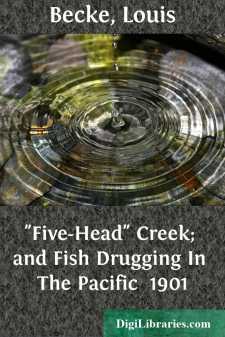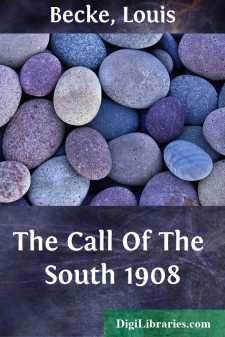Categories
- Antiques & Collectibles 13
- Architecture 36
- Art 48
- Bibles 22
- Biography & Autobiography 813
- Body, Mind & Spirit 141
- Business & Economics 28
- Children's Books 12
- Children's Fiction 9
- Computers 4
- Cooking 94
- Crafts & Hobbies 4
- Drama 346
- Education 46
- Family & Relationships 57
- Fiction 11826
- Games 19
- Gardening 17
- Health & Fitness 34
- History 1377
- House & Home 1
- Humor 147
- Juvenile Fiction 1873
- Juvenile Nonfiction 202
- Language Arts & Disciplines 88
- Law 16
- Literary Collections 686
- Literary Criticism 179
- Mathematics 13
- Medical 41
- Music 40
- Nature 179
- Non-Classifiable 1768
- Performing Arts 7
- Periodicals 1453
- Philosophy 64
- Photography 2
- Poetry 896
- Political Science 203
- Psychology 42
- Reference 154
- Religion 513
- Science 126
- Self-Help 83
- Social Science 81
- Sports & Recreation 34
- Study Aids 3
- Technology & Engineering 59
- Transportation 23
- Travel 463
- True Crime 29
Sort by:
by:
Louis Becke
I had ridden all day through an endless vista ot ghostly grey gums and ironbarks, when I came in sight of the long wavering line of vivid green foliage which showed me that I had reached my destination—a roughly-built slab hut with a roof of corrugated iron. This place was to be my home for six months, and stood on the bank of Five-Head Creek, twenty-five miles from the rising city of Townsville in...
more...
by:
Louis Becke
CHAPTER I Captain Ethan Keller, of the Casilda of Nantucket, was in a very bad temper, for in four days he had lost two of the five boats the barque carried—one had been hopelessly stove by the dreaded "underclip" given her by a crafty old bull sperm-whale, and the other, which was in charge of the second mate, had not been seen for seventy hours. When last sighted she was fast to the same...
more...
by:
Louis Becke
"LULIBAN OF THE POOL" A boy and a girl sat by the rocky margin of a deep mountain pool in Ponape in the North Pacific. The girl was weaving a basket from the leaves of a cocoa-nut. As she wove she sang the "Song of Luliban," and the boy listened intently. "'Tis a fine song that thou singest, Niya," said the boy, who came from Metalanien and was a stranger; "and who was...
more...
by:
Louis Becke
I ~ THE "STARLIGHT" As the rising sun had just begun to pierce the misty tropic haze of early dawn, a small, white-painted schooner of ninety or a hundred tons burden was bearing down upon the low, densely-wooded island of Mayou, which lies between the coast of south-east New Guinea and the murderous Solomon Group—the grave of the white man in Melanesia. The white population of Mayou was not...
more...
by:
Louis Becke
Jack Barrington, nominal owner of Tinandra Downs cattle station on the Gilbert River in the far north of North Queensland, was riding slowly over his run, when, as the fierce rays of a blazing sun, set in a sky of brass, smote upon his head and shoulders and his labouring stock-horse plodded wearily homewards over the spongy, sandy soil, the lines of Barcroft Boake came to his mind, and, after he had...
more...
by:
Louis Becke
"MARTIN OF NITENDI" Half-way up the side of the mountain which overlooked the waters of the little land-locked harbour there was a space clear of timber. Huge, jagged rocks, whose surfaces were covered with creepers and grey moss, protruded from the soil, and on the highest of these a man was lying at full length, looking at the gunboat anchored half a mile away. He was clothed in a girdle of...
more...
by:
Louis Becke
In the sea story of Australia, from the days of Captain Phillip in 1788, to the end of the "fifties" in the present century, American ships and seamen have no little part. First they came into the harbour of Sydney Cove as traders carrying provisions for sale to the half-starved settlers, then as whalers, and before another thirty years had passed, the starry banner might be met with anywhere...
more...
by:
Louis Becke
Perhaps the proper title of this article should be "The Influence of American Enterprise upon the Maritime Development of the first Colony in Australia," but as such a long-winded phrase would convey, at the outset, no clearer conception of the subject-matter than that of "The Americans in the South Seas," we trust our readers will be satisfied with the simpler title. It is curious,...
more...
by:
Louis Becke
With her white cotton canvas swelling gently out and then softly drooping flat against her cordage, the Shawnee, sperm whaler of New Bedford, with the dying breath of the south-east trade, was sailing lazily over a sea whose waters were as calm as those of a mountain lake. Twenty miles astern the lofty peaks of Tutuila, one of the islands of the Samoan group, stood out clearly in the dazzling sunshine,...
more...
by:
Louis Becke
CHAPTER I ~ PAUL, THE DIVER "Feeling any better to-day, Paul?" "Guess I'm getting round," and the big, bronzed-faced man raised his eyes to mine as he lay under the awning on the after deck of his pearling lugger. I sat down beside him and began to talk. A mile away the white beach of a little, land-locked bay shimmered under the morning sun, and the drooping fronds of the cocos...
more...











